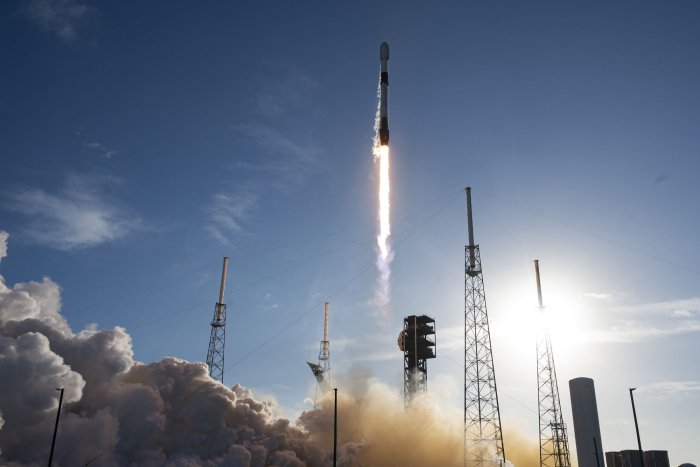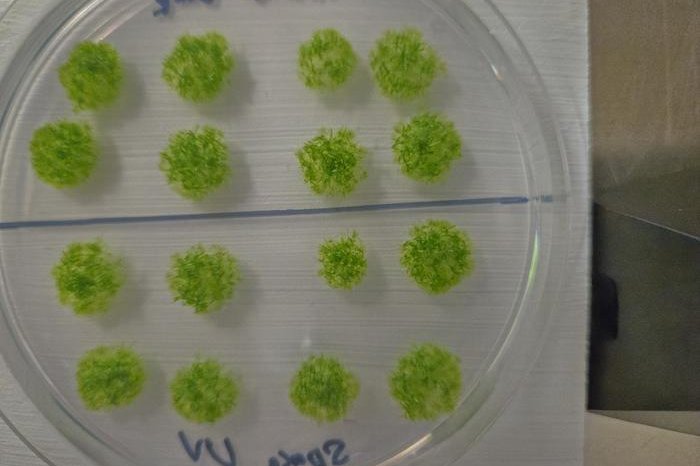Germinated moss spores are pictured after being exposed to the rigors of space on the outside of the International Space Station, where the survived for nine months. Photo by Chang hyun-Maeng and Maika Kobayashi/Hokkaido University
Nov. 21 (UPI) — Spores of moss survived nearly a year outside of the International Space Station and has returned back to Earth alive.
The moss survived for the nine month period and returned with more than 80% of its spores able to reproduce once back on Earth, researchers reported in a study published in iScience.
“Most living organisms, including humans, cannot survive even briefly in the vacuum of space,” lead study author Tomomichi Fujita told NBC News.
Fujita, professor of plant biology at Hokkaido University in Japan, said the experiment provides “striking evidence” that from Earth, at least on the cellular level, can survive the harsh conditions of space.
Past scientific experiments focused on larger living organisms like plant crops and other bacteria.
The native Earth Moss, which was attached to the exterior of the ISS, can thrive in extreme environments both cold and scorching hot.
Fujita and the researcher team said the experiment can help improve the understanding of scientists of how native Earth species will survive in extreme outer space conditions.
He said the researchers expected an “almost zero survival” rate but the results were “the opposite.”
In comments to Live Science, he noted that while the experiment may seem like a simple exercise testing the limits of a single species, the moss spore’s survival “could offer a biological stepping stone for building ecosystems beyond our planet.”

A SpaceX Falcon 9 rocket launches the Northrop Grumman Cygnus XL spacecraft on a cargo resupply mission for the International Space Station from Complex 40 at the Cape Canaveral Space Force Station in Florida on September 14, 2025. Photo by Joe Marino/UPI | License Photo

